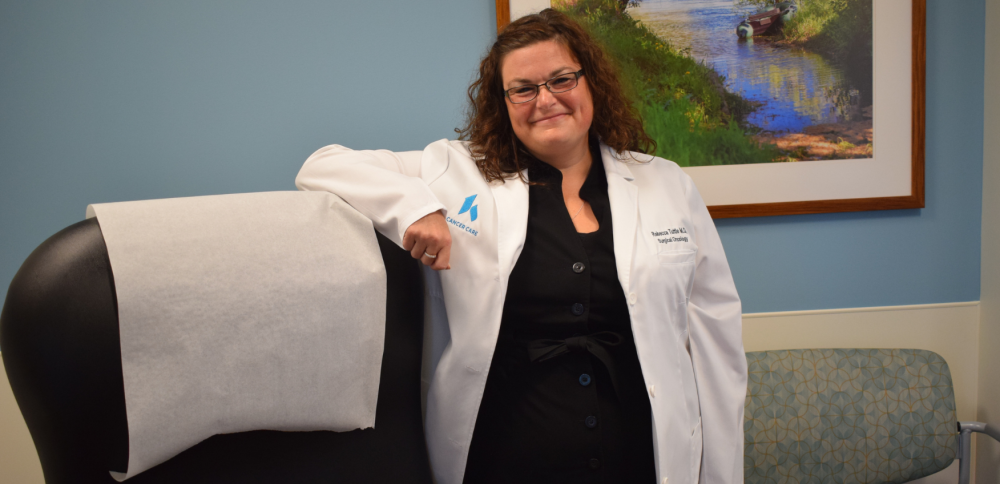Breast Health
Want to learn more about this at Kettering Health?
October is Breast Cancer Awareness Month and the American Cancer Society considers “breast awareness” to be the most important tool for prevention and early detection. This October, take the time to learn what your normal is.
What is breast awareness?
“Breast awareness means knowing your normal,” says Dr. Rebecca Tuttle, a surgical oncologist with Kettering Health Cancer Care. “Is the skin puckering? Is there a mass? Do you have nipple discharge? You should be able to identify a change in your breast.”
Each body is different, and everyone has their own normal. Self-exams and familiarizing yourself with your baseline is important for this reason.
Dr. Tuttle explains that she commonly has conversations with younger patients about breast density. Some women have naturally dense breasts, which is important to know when identifying new lumps or masses.
“If your breast tissue is always lumpy, your goal is to be able to identify a change or if something is different,” says Dr. Tuttle.
In addition to knowing what your breasts typically feel like, breast awareness also encompasses knowledge of your risks. If you have a family history of breast cancer or ovarian cancer, your OB-GYN or primary care physician may have different recommendations for when you should begin breast screenings, including mammographic screening.
Start an open conversation with your family and your doctor about family history and genetic risks to best protect yourself from breast cancer.
How can I reduce my risk of breast cancer?
“An enormous cancer prevention is maintaining a healthy lifestyle,” says Dr. Tuttle. This includes sustaining a healthy weight, incorporating routine physical activity, and eating a healthy diet.
Some risk factors for breast cancer are not modifiable—such as family history and genetics—but it’s important to be aware of them.
Total lifetime estrogen exposure can also be a contributing risk or preventive factor. For example, if a woman starts her period earlier in life, or goes through menopause later in life, this increases her lifetime estrogen exposure and can be a risk factor for breast cancer. Alternately, breastfeeding and oral contraceptive pills decrease risk.
The most important thing you can do for your health is simply to know yourself; some risk factors are uncontrollable, but if you have an early awareness of your comprehensive health and family history, you and your doctor can ensure you are getting the appropriate screenings at the appropriate times.









